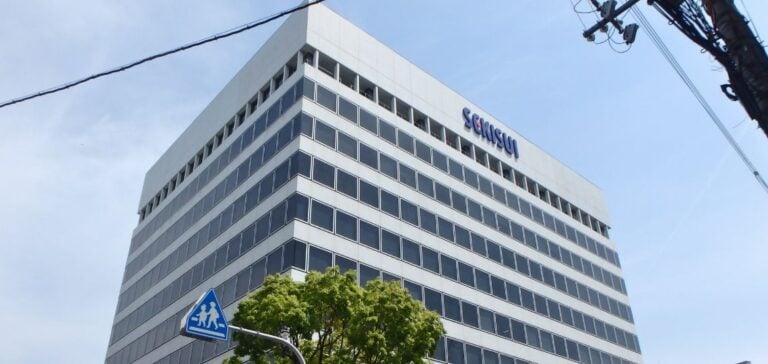SEKISUI CHEMICAL CO., LTD., with the backing of the Japanese government, is accelerating the development of a production capacity for perovskite-based solar cells. This financial commitment, estimated at 90 billion yen, represents a strategic step for the country’s energy transition.
The project, part of the GX Supply Chain Construction Support Project, aims to strengthen Japan’s energy sovereignty by establishing a supply chain capable of generating 1 gigawatt (GW) of solar energy by 2030.
Strategic Investment and Partnerships
The main factory of SHARP CORPORATION in Sakai, Osaka Prefecture, will be repurposed to host SEKISUI CHEMICAL’s facilities. A new entity, SEKISUI SOLAR FILM CO., LTD., will be established to oversee the design, manufacturing, and distribution of these solar cells.
The project is backed by a strategic financial partnership with the Development Bank of Japan, which holds a 14% stake in the subsidiary. This collaboration aims to secure the necessary funds for infrastructure deployment and optimize production costs.
A Long-Term Plan
Initially, SEKISUI CHEMICAL plans to achieve a production capacity of 100 megawatts (MW) by 2027, with a gradual scale-up. The company will focus on applications for public buildings and infrastructure with low load capacity before expanding to private markets.
This initiative is part of a broader strategy to reduce Japan’s foreign energy dependencies and develop export capabilities. Government subsidies covering 50% of the costs underscore the project’s political significance.
A Challenge for the Energy Industry
Perovskite-based solar cell technology, lighter and more flexible than traditional panels, represents a major advancement in renewable energy. However, large-scale adoption remains a challenge due to production costs and international competition.
To meet its objectives, SEKISUI CHEMICAL will need to increase its production capacity while improving energy efficiency and product durability. Establishing a domestic supply chain could also stimulate other sectors linked to renewable energy.






















